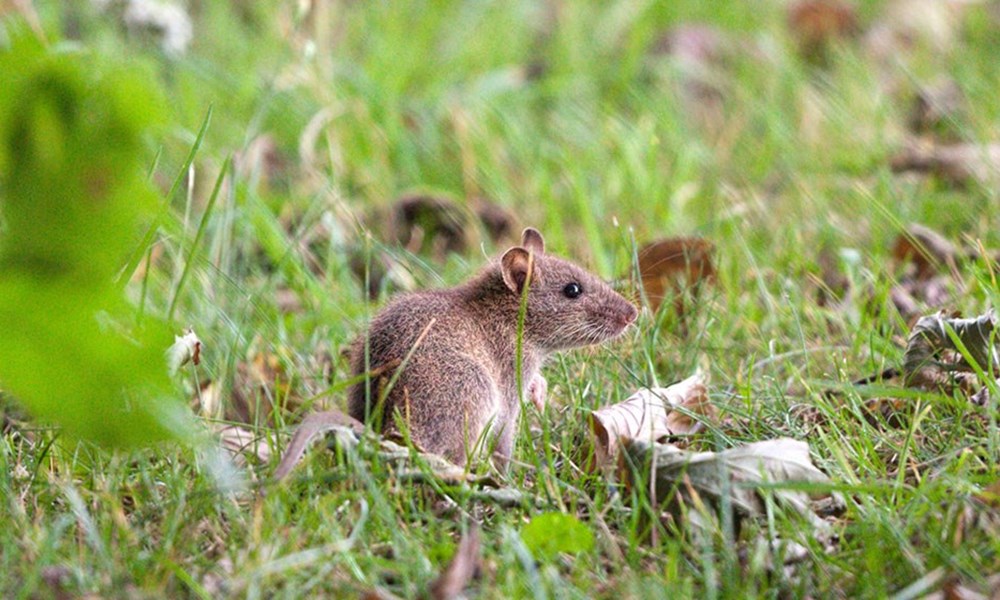In today's environmentally conscious world, finding solutions for farm rodent control without poisons has become a priority for many farmers. The desire to protect crops and livestock while maintaining a safe and healthy environment for humans and wildlife is a balancing act that requires innovative thinking. Fortunately, there are numerous methods available that allow farmers to manage rodent populations effectively without resorting to harmful chemicals.
Rodents, including mice and rats, can wreak havoc on farms by consuming and contaminating stored grains, damaging equipment, and spreading diseases. Traditionally, chemical poisons have been the go-to solution for eliminating these pests. However, the use of toxic substances poses significant risks, not only to the environment but also to farm animals and humans.

The Need for Non-Toxic Solutions
With growing awareness of the negative impacts of chemical poisons, more farmers are seeking non-toxic alternatives. These methods not only protect the ecosystem but also often prove to be more sustainable in the long run. By adopting eco-friendly pest control practices, farmers can contribute to biodiversity and reduce the risk of secondary poisoning to other wildlife.
One compelling reason to choose non-toxic solutions is to safeguard the farm's overall health. Chemical poisons can leach into the soil and water supply, potentially affecting the quality of produce and livestock. In contrast, non-toxic strategies help maintain the integrity of organic farming practices.
Natural Repellents: A Gentle Approach
Natural repellents are a popular choice for farm rodent control. These products are made from plant-based ingredients that deter rodents without causing harm. Essential oils such as peppermint, eucalyptus, and lavender are known for their strong scents, which rodents find unpleasant. These oils can be used in diffusers or sprays around the farm to create a rodent-free zone.
Another effective natural repellent is garlic. A natural mouse deterrent with garlic and vinegar can be created by mixing crushed garlic with water and spraying it around entry points. The pungent smell is sure to keep rodents at bay without harming them or other animals on the farm.
Physical Barriers: Keeping Rodents Out
Implementing physical barriers is another essential strategy in farm rodent control without poisons. Sealing entry points and using sturdy materials to block access to food storage areas can significantly reduce rodent infiltration. Metal or heavy-duty plastic containers are ideal for storing grains and animal feed.
Regular maintenance of farm structures is crucial. Inspect buildings and storage areas for holes or gaps that rodents could exploit. Using wire mesh or steel wool to seal these openings is an effective way to prevent rodents from gaining entry.
Encouraging Natural Predators
Nature provides its own solutions for pest control in the form of natural predators. Birds of prey, such as owls and hawks, can help keep rodent populations in check. Installing nesting boxes for these birds around the farm can encourage them to take up residence and naturally manage the rodent problem.
Cats are also excellent rodent hunters. Allowing farm cats to roam freely can help reduce the number of rodents without the need for poisons. It's important to ensure that cats are well-cared for and vaccinated to maintain their health as they patrol the farm.
Adopting Integrated Pest Management (IPM)
Integrated Pest Management (IPM) is a holistic approach to pest control that combines various strategies to manage pests effectively and sustainably. IPM emphasizes prevention, monitoring, and control methods that are environmentally friendly and economically viable.
An IPM plan for farm rodent control might include regular monitoring of rodent activity, implementation of natural repellents, and maintenance of physical barriers. By understanding the behavior and ecology of rodents, farmers can develop targeted strategies that minimize the need for poisons.
For more information on creating an IPM plan, check out this detailed guide from Good Housekeeping.

Conclusion: A Safer Path Forward
As more farmers embrace the concept of farm rodent control without poisons, they are discovering that non-toxic methods can be just as effective, if not more so, than traditional chemical solutions. By prioritizing the health of their farms and the environment, they are paving the way for a safer and more sustainable future.
Implementing these strategies requires commitment and a willingness to adapt, but the benefits far outweigh the challenges. Farmers who invest in non-toxic rodent control not only protect their crops and livestock but also contribute to a healthier planet for future generations.
FAQs
Q1: Are natural repellents safe for all farm animals?
A1: Yes, natural repellents made from essential oils and other plant-based ingredients are generally safe for farm animals when used as directed. However, it's always best to test a small area first and monitor any potential reactions.
Q2: How can I make my farm more attractive to natural predators?
A2: To attract natural predators like owls and hawks, consider installing nesting boxes and perches. Providing a habitat with trees and open spaces can also encourage these birds to visit and help control rodent populations.
Q3: What are the key components of an IPM plan for rodent control?
A3: An effective IPM plan includes regular monitoring of rodent activity, use of natural repellents, sealing entry points, and encouraging natural predators. This comprehensive approach minimizes the reliance on chemical poisons.
